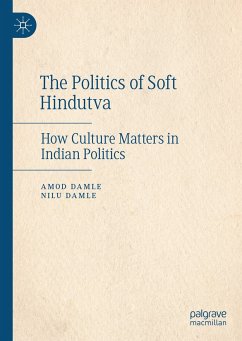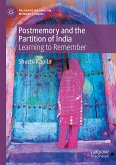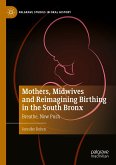This book examines the rise of two contrasting variants of Hindu nationalism-the Bharatiya Janata Party's (BJP) divisive cultural nationalism and the softer, less threatening variant of Hindutva espoused by the Aam Aadmi Party (AAP) and Trinamool Congress (TMC). Historically, the overlaps between Hinduism and Islam bolstered the narrative that the Muslims were culturally inferior to the Hindus and that Hinduism was India's unifying tradition. As a result, for many Hindus, emphasizing the distinctiveness of a minority group, especially the Muslims, represents a threat to Hindu superiority and India's cultural integrity. With the rise of the BJP, AAP, and TMC, we witness a tussle between two strains of Hindu nativism. The BJP attempts to attract the Hindu vote by heightening the differences between Hindus and Muslims and portraying itself as the restorer of national integrity. The AAP and TMC revive a much older form of cultural nativism by downplaying the separateness of the Muslims, indicating that India is already a Hindu nation and that there is no need to persecute religious minorities. Comparing the two variants of cultural nationalism provides valuable insights into how culture matters in Indian politics.
Amod Damle is an associate professor of design in the College of Innovation and Design at Boise State University, USA. Damle examines intercultural conflicts from systems and design thinking perspectives. He has published his research in leading peer-reviewed journals such as Human Factors and Design Studies.
Nilu Damle is a writer and a journalist. Author of 24 books, Damle has conducted fieldwork in Palestine, Afghanistan, Europe, Africa, and South Asia. He has written extensively about politics and culture for over fifty years.
Dieser Download kann aus rechtlichen Gründen nur mit Rechnungsadresse in A, B, BG, CY, CZ, D, DK, EW, E, FIN, F, GR, HR, H, IRL, I, LT, L, LR, M, NL, PL, P, R, S, SLO, SK ausgeliefert werden.
Es gelten unsere Allgemeinen Geschäftsbedingungen: www.buecher.de/agb
Impressum
www.buecher.de ist ein Internetauftritt der buecher.de internetstores GmbH
Geschäftsführung: Monica Sawhney | Roland Kölbl | Günter Hilger
Sitz der Gesellschaft: Batheyer Straße 115 - 117, 58099 Hagen
Postanschrift: Bürgermeister-Wegele-Str. 12, 86167 Augsburg
Amtsgericht Hagen HRB 13257
Steuernummer: 321/5800/1497
USt-IdNr: DE450055826
Bitte wählen Sie Ihr Anliegen aus.
Rechnungen
Retourenschein anfordern
Bestellstatus
Storno









